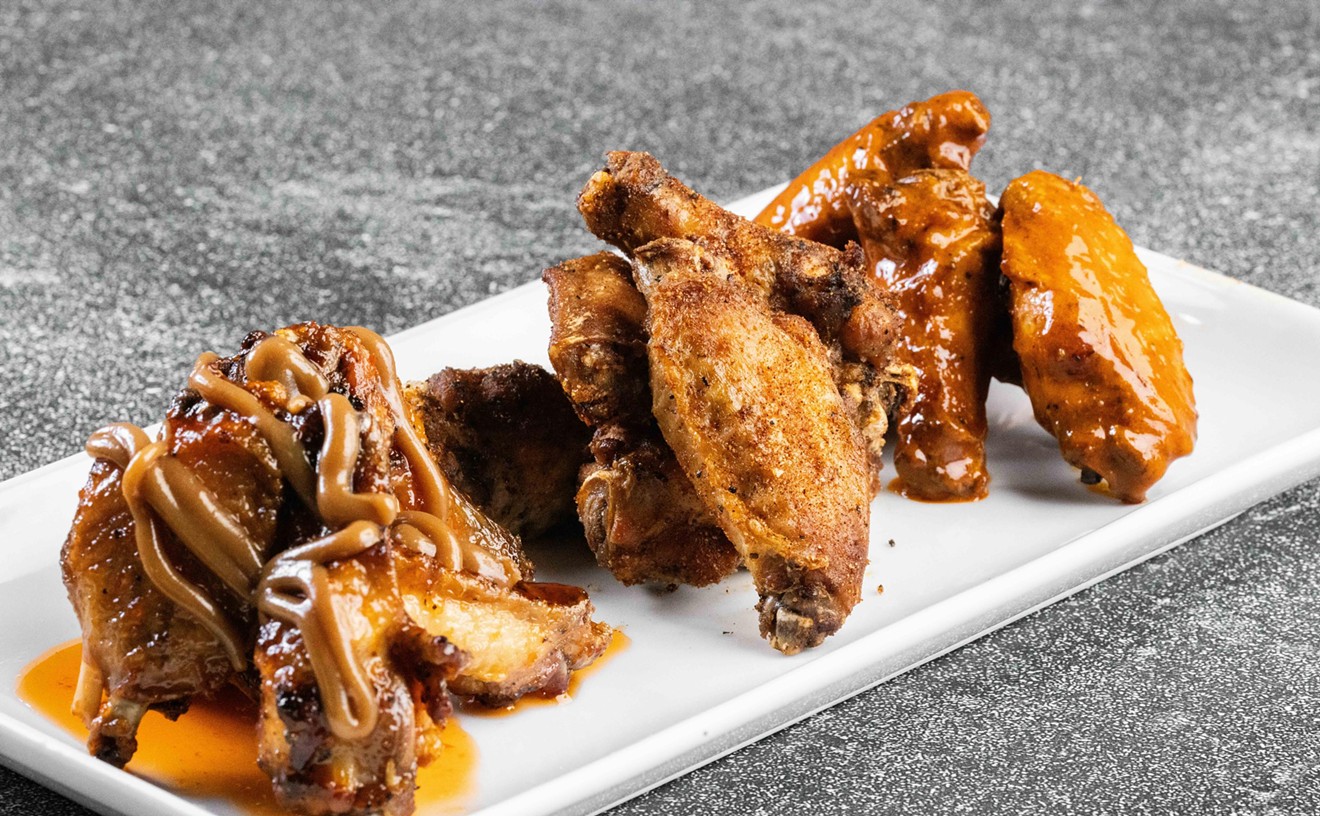Or so we're told, anyway. Self-styled "foodies," members of the slow food movement and agitators who decry globalization tend to be rather scathing in their opinion of processed meals, super-sized orders and other aspects of mainstream American cuisine. They somehow forget that potatoes--a staple in Eastern Europe--grew originally in Central America, that Romans introduced wine to France, that the unique flavors of the Caribbean developed as waves of Europeans and Africans descended on the islands, merging their own understanding of food preparation with local ingredients.
They also ignore the fact that American cuisine of the Swanson's or McDonald's variety is the product of a culture devoted to efficiency and mass production.
Sure, we understand fresh, locally produced goods generally taste better than prepackaged items. But as a people, we've grown used to convenience. "Americans are instant gratification people," says Chris Pyun, executive chef at Jeroboam. "If it's not good the first time, they are not going to try again." At the same time, he points out, the diversity of our culture drives much of our tinkering with new products and different ideas. "Americans are more open to trying other things than people in most countries. My dad's from Korea; he won't try a pizza."
What we're saying is this: People get a lot of things wrong, particularly when they try to characterize food as proper or improper, palatable or totally inedible. "For each culture, it's their version of what they want," explains Aaron Staudenmaier, chef at Jasper's, describing the tendency for people to twist foreign ingredients to suit their own particular tastes. Olive Garden barely resembles true Italian cuisine, a troubling thing only to haughty perfectionists. "There's curry all over England. It's different than Indian curry, but everyone's happy."
This week's query sent the Burning Question crew on a whirlwind trip overseas determined to test items in places with downright iffy reputations and uncover...well, let's just admit it. They serve some downright wicked drinks in Europe, and we intended to test them all. Imagine discovering a cache of absinthe, a potent green liqueur banned in the United States, downing a significant volume of the stuff and waking up days later inside a crumbling Soviet-built apartment block somewhere in Lithuania.
Fortunately for our research, Lithuanian cuisine is frightening at times. They serve potatoes, potatoes and more potatoes, often doused with bacon grease and sour cream. Other faves include raw bacon, pickled herring, pig ears and fresh wild mushrooms sautéed beyond recognition in a mess of bacon grease and sour cream. Oh, and smoked fish, complete with heads and bones.
"I think that's a peasant tradition where nothing was wasted because food was hard to come by," says Michael Zeve, chef at Sevy's.
Aficionados of regional cuisine either enjoy it or learn to appreciate its origins. The Burning Question crew relied on heavy doses of vodka. Our visit to the Baltic country left us with gastric ailments, severe hangovers and wives. More than the law allows.
"In Eastern Europe, you have to look at how they've lived the last 80 years," Pyun reminds us. "They didn't have the wherewithal to develop their cuisine. You have to look at the history of a country, the availability of product, everything."
Well, at least Lithuanians whip up a very enjoyable cold beet soup. And vodka is both cheap and plentiful.
Of course, the Baltic states attract few tourists. Most world-wise travelers, when asked about dining in Europe, rave about Paris, Tuscany, the French countryside, Rome, Madrid...but look askance at English cuisine. After all, anyone who ever suffered through greasy fish and chips rolled in an old newspaper, steak and kidney pie, boiled beef or a cold tomato and butter sandwich could find little charming in a British restaurant.
Local chefs, however, defend British dishes. "England is a working-class country," Pyun snaps, "the meat-and-potatoes people who rescued the French." We cut him off before he launched into the "why do French tanks have five gears?" routine. "A lot of people say English cuisine is horrible," Staudenmaier adds. "There are different things there that freak us out, like mushy peas." Yet he points out that appreciation of food is subjective. "Even French is terrible if it's prepared poorly."
We tried some old British staples--such as pigeon--prepared by Norman Farquharson of The Tenth on Kensington High Street in London, if only to rack up more expenses and confirm that English cuisine defies criticism. His creations are remarkable, drawing flavors from across the globe.
And that is the point. It's a small world, and people throughout Europe and the United States encounter new flavors and traditions as trade expands. "I don't think you can put a broad label on any cuisine," Pyun says. "It comes down to personal taste."
And you can always kill the flavor with a few shots of vodka.










